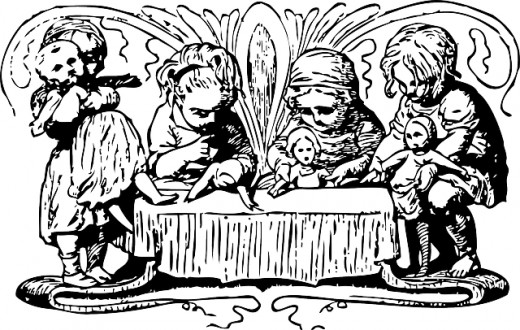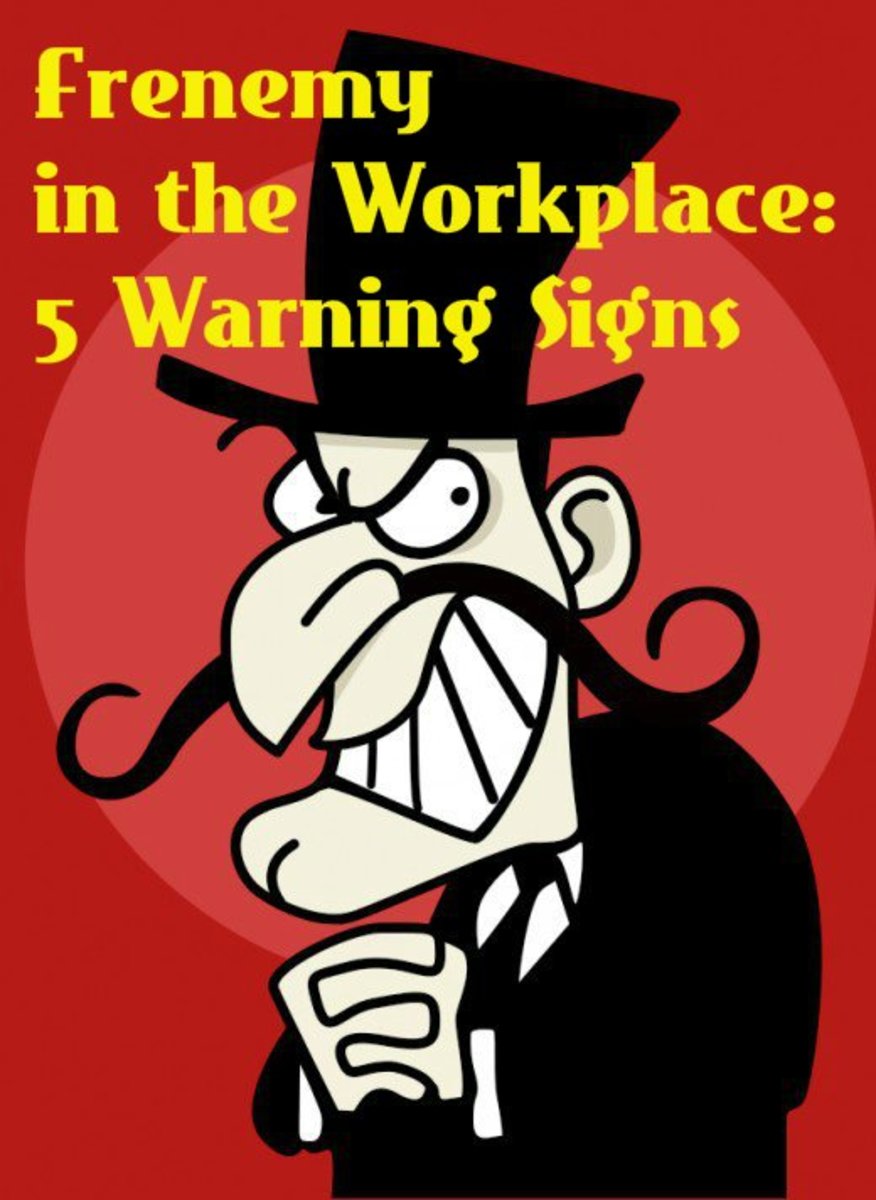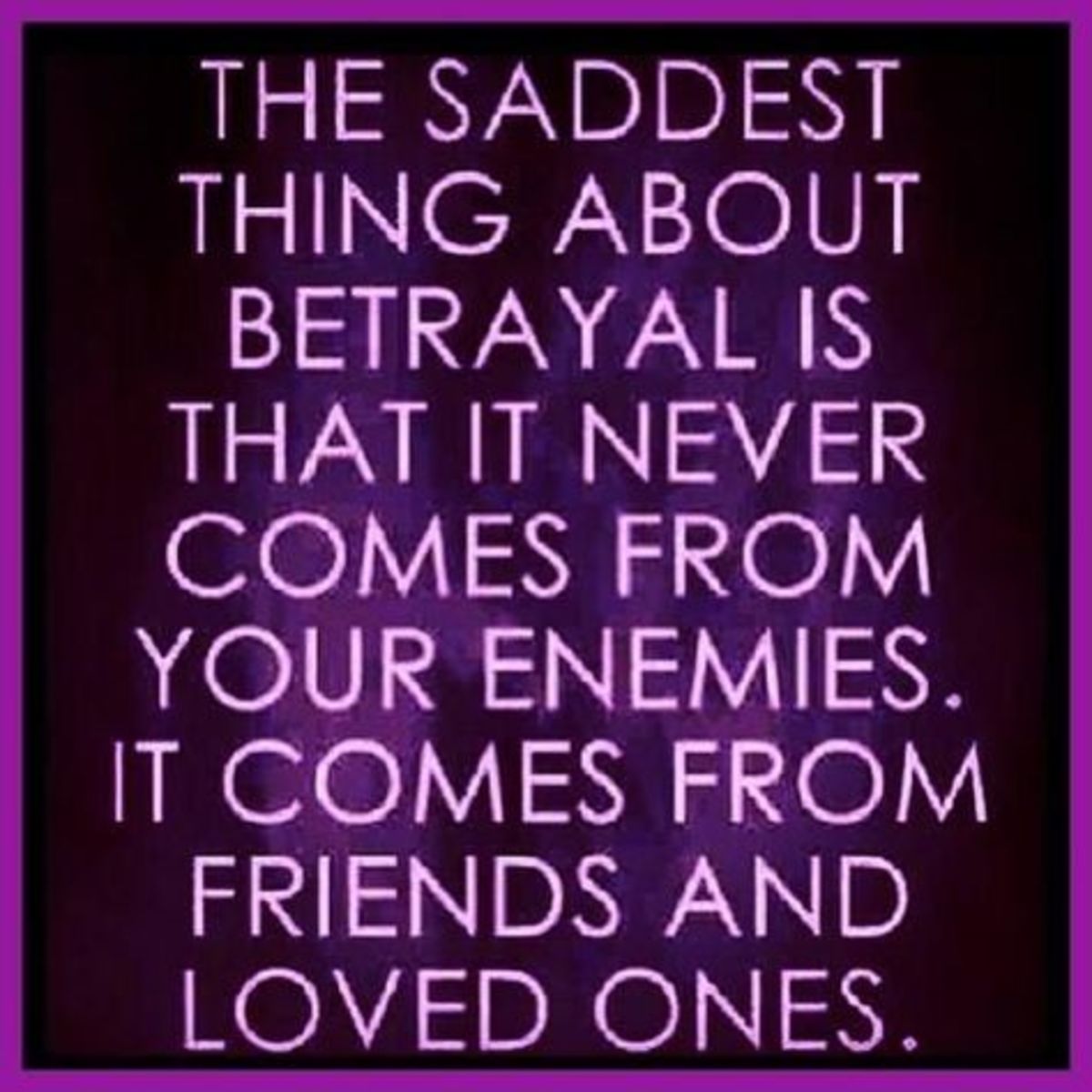Dealing with Highly Competitive Women
Learning to Spot a Competitive Person
Not everyone necessarily has our best interests at heart. Unfortunately, we usually discover this after the fact, as the relationship is imploding.
We realize this individual we trusted, with whom we shared our confidences, is not the person we thought she was. This comes as a shock, as we assume that no one plays childish games anymore once they reach a certain age.
Unfortunately, highly competitive girls often develop into highly competitive women. This means they'll stop at literally nothing to gain what they desire. If it's something you have, it becomes all the more attractive to them. Their envy can encompass even intangible assets, such as good looks, a network of friends and an outgoing personality. Believe it or not, someone with this type of character flaw may even hate you because you have integrity, and they don't.
However, because extreme covetousness is such an ugly trait, competitive folks are very good at disguising their true nature. They appear helpful and genuine. They appear kind, caring and trustworthy.
However, if you've "befriended" a highly competitive person, chances are that your relationship is not on solid ground and is probably even on a collision course. With any luck, you discover this before you make the fatal mistake of trusting a fake friend with your secrets. Letting a competitive personality into your life is much like buckling yourself into a seat on an emotional roller coaster. Hold on tight, because it's going to be a very bumpy ride.

Spotting a Frenemy
There's a relatively new term known as "frenemy," which, since 2009, has been included in the Merriam Webster dictionary. The meaning of this word is just what you'd assume it is, and its dictionary definition is, "one who pretends to be a friend but is actually an enemy."
There are women who act like they're your friend. They may call you. They may invite you to go places with them. They may email you. On the one hand, they may like you. But, deep down, they hate you. They seem happy when things in your life go bad. They get upset when something good happens, and all is well.
Someone who really doesn't like you is someone you don't need to spend time with, for a number of reasons. One of the most important is that not having a frenemy around gives you a lot more time and energy to focus on happier things and kinder people.

Look for Thinly Disguised Barbs
A "friend" who throws subtle insults your way is someone who can barely conceal her contempt for you. (This is her issue, not yours.) These sneak attacks are designed to erode your confidence. They also allow her to vent her anger by taking small potshots at you.
These digs can be extremely covert, and you may even wonder if you're being "too sensitive." If you question her, she will probably accuse you of that very thing. But you have a right to your feelings. If something hurts you, then you should be able to talk about it, without having a verbal hand grenade launched in your direction.
Be very mindful of any apparent insults delivered after something good has happened in your life, such as a promotion at work or the start of a new and exciting romantic relationship. A true friend is happy when you're happy.
I realize I'm speaking as if I'm a psychologist, or a trained mental health professional, which I'm not. However, I've had the unfortunate experience of meeting a covert frenemy some years back, and, by necessity, I've had to learn about malignant narcissism and other personality disorders, which is what drives the most dangerous and destructive types of frenemies. So, now ,I know better what to look out for, and what type of behavior I'm willing to put up with.
The Green-Eyed Monster
Have you ever dealt with a highly competitive female friend?
Spending Time With a Frenemy
One of the best way to gauge the health of a particular female friendship is taking a look at how you feel after you spend time in her company. Do you feel happy, peaceful and supported? If so, that's a good sign.
However, if you have a nagging, unsettling feeling, and this happens every time you see this person, you may want to evaluate the relationship. Was there something she said that set you on edge? Is it difficult to get an honest answer from this person, or does she evade your questions? Do you feel that something isn't quite right, yet you can't quite put your finger on it? Do you dread the thought of being in her company? Do you feel more peaceful when you don't see her?
Being with our friends should be a joyful, uplifting experience. Anything less, if it becomes a pattern, may mean the relationship isn't what it should be.

Go With Your Gut
If you think that something is wrong, there's a very good chance that this is the case. Don't discount that inner voice that tells you to tread lightly and play your emotional cards close to your chest.
Think about whether this particular person brings out your best qualities. Do you feel calm, loving, peaceful and encouraged after you've seen her. Or are you angry, but don't quite know why?
If spending time with this friend unsettles you, and you've taken inventory of your own behavior, and it's in check, then you could be dealing with a frenemy.
Frenemies Send Mixed Signals
Detecting that someone isn't true blue is often difficult. That's because it's confusing being in the company of a frenemy. In addition to the drama they create in your life, they send mixed signals. For instance, your birthday comes around and your fake friend appears at your house with a bouquet of flowers. She wants to take you out for dinner.
However, the next time you see her she's standoffish and a little aloof. It almost seems as if she's angry with you. You wonder if you did something wrong. Nope, it's because deep down she really doesn't like you, and is probably envious of you, but, of course, she won't tell you this.
If this hot/cold behavior happens just one or twice, chalk it up to your otherwise good friend having a bad day. However, if this is a pattern that repeats itself, you may have to decide how much time you want to invest in this particular "friend."
Dealing with Selfish and Manipulative People
Breaking Up with a Frenemy
If someone proves to you that they're not loyal, you don't need to feel guilty for not wanting to spend time with them. You can either be less available, and let the "friendship" fade away, or tell them directly why you're no longer comfortable seeing them anymore. However, you may also have to prepare yourself for excuses and denials, as well as nasty accusations thrown your way.
Highly competitive people, as I mentioned earlier, often suffer from borderline or narcissistic personality disorder. Individuals with these problems don't like to be held accountable. So they typically lash out if you confront them about their behavior. This is what many psychologists and mental health experts refer to as "narcissistic rage."
Don't Look Back
Although you may have spent a lot of time with this "friend," who turned out to be an enemy in disguise, ready to undermine you at every turn, you'll be infinitely happier in the long run if you make a nice clean break. You deserve much better.
For Additional Reading
- Surviving a Friend's Betrayal
Betrayal is a painful. It's worse when a friend turns out to be a foe. This is how I moved beyond the devastation of a very damaging "friendship." - Why Are Women So Mean to One Another?
A discussion about why women are so mean to each other. - How to Handle Church Bullies
A reflection on malignant narcissism from a spiritual perspective.
Disclosure
I am a participant in the Amazon Services LLC Associates Program, an affiliate advertising program designed to provide a means for sites to earn advertising fees by advertising and linking to amazon.com.












